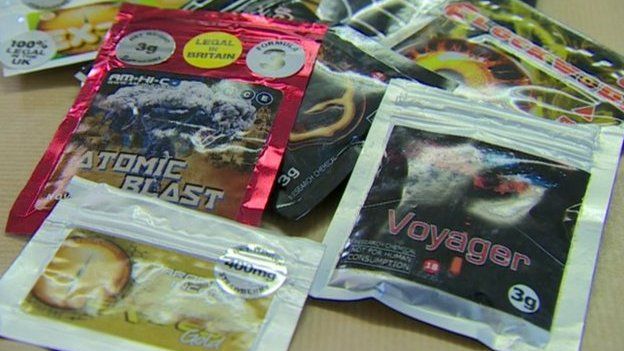Stark anti-drugs campaign 'needed to prevent deaths'
- Published

Young people have died "horrific deaths" from taking multiple drugs, a senior member of the Forensic Science service in Northern Ireland has said.
Twenty people have died in the last year from drugs known as "speckled cherries".
Many more have died from taking a cocktail of other substances.
Forensic expert Peter Barker said it was time for an anti-drugs campaign along the lines of road safety adverts.
"We've seen some really horrific deaths where people have killed themselves after taking multiple drugs," he said.
"I think we need to be much more stark in the message we send to the public - adverts similar to those we've seen in road safety campaigns."
The forensic labs are based in Carrickfergus and they use state of the art equipment to carry out toxicology reports after someone has died.
'Bucket chemistry'
Mr Barker said so-called legal highs are presenting significant challenges.
"We call it bucket chemistry - these drugs are developed in back alley garages," he added.
"They haven't had clinical trials and no one knows what is in them. They are not safe for people to take, even if they have taken a similar compound before."
About two new drugs are detected each week across Europe and that means researchers are always trying to stay ahead of the game to alert the public to the dangers of new chemicals.
They have the same machines used by the Olympics dope-testers - cutting edge technology that can detect tiny amounts of different substances.
At a recent inquest, Coroner John Leckey described the recent drugs deaths as being similar to having a serial killer on the loose.
Mr Barker said the deaths were extremely unpleasant: "They can cause convulsions, palpitations and heart attacks.
"Children do need to be educated about the dangers."
You can see more on this story on BBC Newsline at 18:30 BST on BBC1 Northern Ireland on Thursday.
- Published30 December 2013
- Published5 June 2014